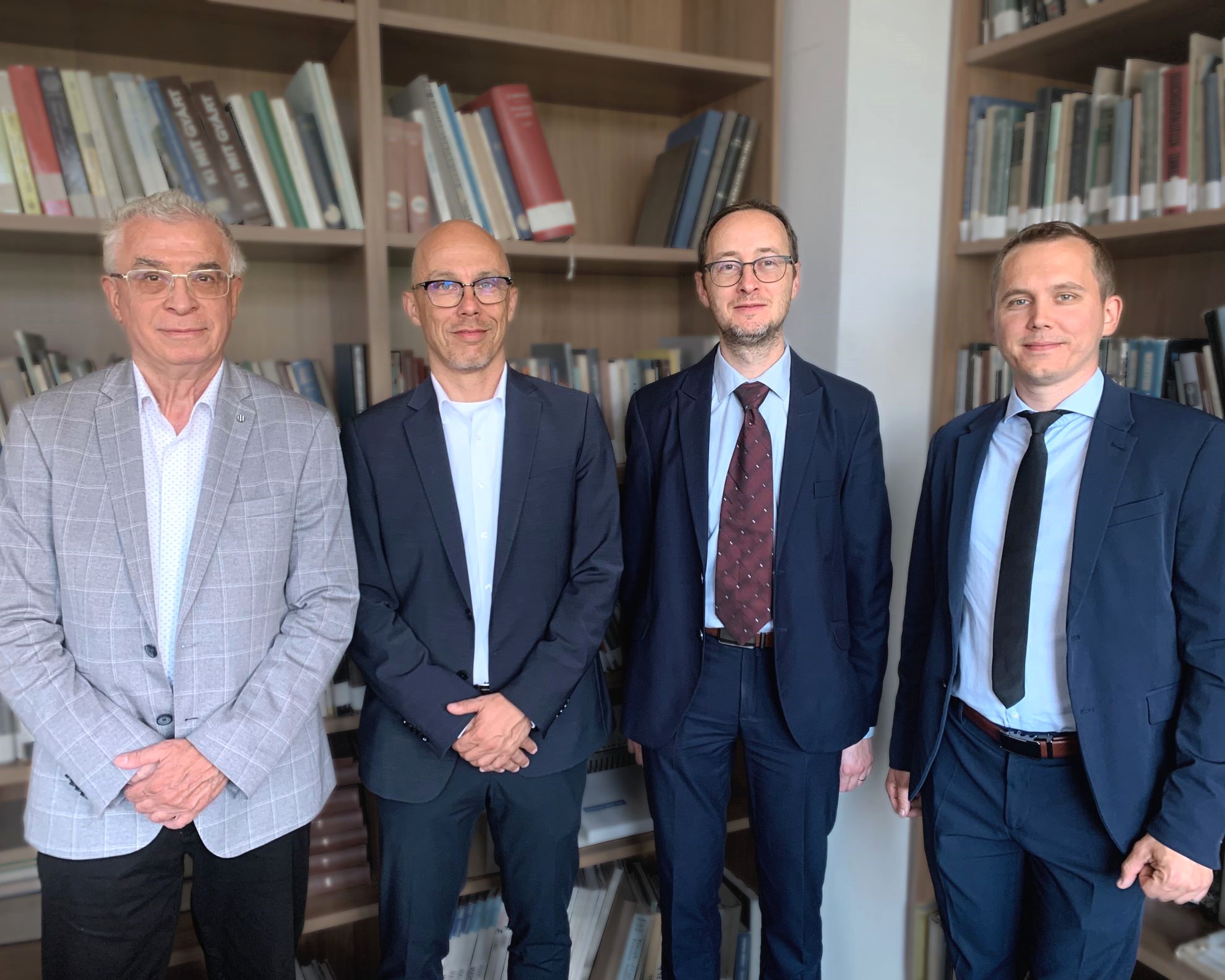Behind the Scenes of Final Exams: A Conversation with the Examination Board Members
The period of final exams is both exciting and challenging for every student. But what is the experience like from the other side? During a break at the Budapest University of Technology and Economics final exams, we had the opportunity to talk with the members of the examination board about their experiences and impressions.
Interviewees:
- Dr. Krisztián Bán, Associate Professor, Head of the Laser and Vehicle Manufacturing Technologies Research Group, Department of Automotive Technologies, BME, Chairman of the Examination Board
- Dr. Krisztián Kun, Head of Vehicle Technology Research Group, Assistant Professor, John von Neumann University, Faculty of Mechanical Engineering and Informatics
- Sándor Geszti, Industrial Services Business Unit Director, TÜV Rheinland InterCert Ltd.
- Tamás Zentai, Managing Director, Energotest Ltd.
What is your overall impression of the candidates?
Tamás Zentai: Overall, it’s very positive. We have assessed six candidates so far, five of whom were good and one was excellent. So, my overall impression is very good.
Dr. Krisztián Kun: Our impression is fundamentally positive. The students are well-prepared, not only professionally but also in their presentation skills. Although there are always a few exceptions, most of them presented their work confidently and clearly.
Sándor Geszti: I agree. Although some were nervous, which is natural, this can be overcome with practice in the future. It is crucial that students are able to answer questions and not freeze under pressure.
How well are the graduates prepared to enter the industry?
Tamás Zentai: This is an extremely interesting question. Integration into the real work environment is crucial because true development comes from practical experience. The university can only provide a foundation, but the real growth and learning occur in the actual engineering work. When a fresh graduate claims to be 60-90% ready, they are effectively hindering their own development, as real learning and progress happen after completing their university studies.
Sándor Geszti: Many students are already working in industrial companies while writing their theses, gaining direct experience with corporate processes and decision-making mechanisms. This provides them a significant advantage when starting their careers.
Dr. Krisztián Kun: Indeed, practical knowledge and experience in an industrial setting greatly contribute to the students’ readiness. Those already working in an industrial environment better understand corporate thinking and practical problems.
What practical knowledge is evident in the students, and what do they still need to develop?
Tamás Zentai: They show proficiency in scaling and simulations, but project and topic management is notably lacking. The ability to manage a development project precisely over time is a critical skill they still need to learn.
So, project management?
Tamás Zentai: Yes, both project and development topic management. This is a significant gap.
Sándor Geszti: It’s not so much a deficiency as an area for growth. Students should also learn to discuss the dead ends they encountered during their research. This can help others avoid making the same mistakes in the future.
Dr. Krisztián Kun: Additionally, improving communication skills is important. Although most students performed well, there is always room for improvement. Public presentations and practice defenses can aid in this development.
How do you assess the students’ problem-solving skills?
Sándor Geszti: The students successfully resolved their tasks and received help where necessary. This indicates they are capable of effectively handling engineering problems.
Dr. Krisztián Bán: I agree. The impression from today is that the students have proven themselves capable of engineering work, whether individually or in groups.
Is there a difference between handling company and academic topics?
Dr. Krisztián Kun: Yes, students working in a corporate environment tend to use a more practical approach, while those focusing on academic topics tend to use a more theoretical approach. This naturally depends on their prior experiences.
What communication methods help in students’ preparation?
Tamás Zentai: It is important for students to develop self-awareness, which aids in improving communication skills. For instance, I used to record my practice presentations with a tape recorder, which helped me improve my presentation style.
Sándor Geszti: I support this method as well. Often, I rehearse what I want to say during car rides, which helps me clarify my message and improve my presentation skills.
In summary, how would you evaluate today’s performance?
Dr. Krisztián Bán: The students have demonstrated their capability for engineering work. The critical feedback was more about presentation skills rather than the technical content. Overall, we are very satisfied with today’s performance.
 BME GJT
BME GJT
